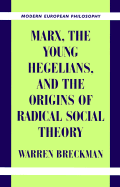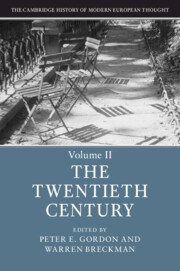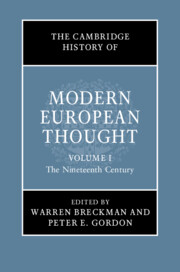Marx, the Young Hegelians, and the Origins of Radical Social Theory
This is the first major study of Marx and the Young Hegelians in twenty years. The book offers a new interpretation of Marx's early development, the political dimension of Young Hegelianism, and that movement's relationship to political and intellectual currents in early nineteenth-century Germany. The book draws together an account of major figures such as Feuerbach and Marx, with discussions of lesser-known but significant figures, as well as such movements as French Saint-Simonianism and "Positive Philosophy." Wide-ranging in scope and synthetic in approach this is an important book for historians of philosophy, theology, political theory and nineteenth-century ideas.
- The first major study of Marx and Hegelianism in 20 years
- Considers major figures such as Feuerbach and Marx as well as lesser-known significant figures
- An important chapter in modern intellectual history for philosophers, historians of ideas, political theorists, and theologians
Reviews & endorsements
"An exemplary exercise in considered, evenhanded delineation of the development of ideas and their relation to their historical circumstance, including not only the major thinkers of the era, but equally those lesser known who advanced or altered the debate." Review of Metaphysics
Product details
November 1998Hardback
9780521624404
348 pages
236 × 161 × 24 mm
0.65kg
Available
Table of Contents
- Introduction
- 1. At the end of idealism: from 'nihilism' to 'positive philosophy'
- 2. The transcendent sovereign and the political theology of restoration
- 3. Ludwig Feuerbach and Christian civil society
- 4. The social and political discourse of personality, 1835–1840
- 5. Pantheism, social question and the third age
- 6. Arnold Ruge: radical democracy and the politics of personhood, 1838–1843
- 7. Karl Marx: from social republicanism to communism
- Conclusion
- Notes
- Bibliography.









